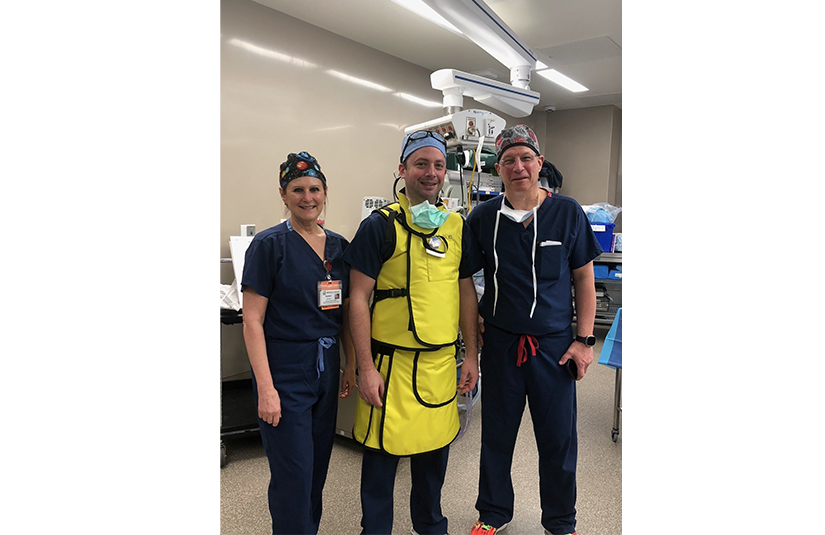Riverside Regional Medical Center (RRMC) becomes the first in Hampton Roads to utilize the Edwards SAPIEN 3 Ultra RESILIA valve to improve patient outcomes during a Transcatheter Aortic Valve Replacement (TAVR) procedure.
TAVR is a procedure to replace the aortic valve in patients living with severe aortic stenosis. Aortic stenosis is a thickening of the leaflets of the aortic valve due to calcium build-up over time. This thickening prevents the valve from opening and closing correctly, placing increased demands on the heart and causing symptoms such as shortness of breath and chest pain. Medication can only manage the symptoms, and valve repair or replacement is the only option for severe aortic stenosis. Historically, surgical aortic valve replacement (SAVR) was the only approach, and usually this was done with open-heart surgery. Minimally invasive, robotic SAVR can also be done in some cases, but both surgical options involve stopping the heart and utilizing a heart-lung bypass machine, chest incisions and general anesthesia.
In the TAVR procedure a structural cardiologist and cardiac surgeon utilize a catheter-based approach to replace the valve under light sedation. The valve is accessed with a sheath through an artery in the groin, eliminating the need for traditional surgery. This means the patient can avoid large incisions, general anesthesia and the use of the heart-lung bypass machine, all resulting in reduced risk to patients and shorter recovery times. In fact, patients often go home the next day.
The innovative Edwards SAPIEN 3 Ultra RESILIA valve is specifically treated to block calcification build up, potentially extending the lifespan of the valve and reducing occurrence of reintervention. The RESILIA valve was approved by the Food and Drug Administration (FDA) for implementation in 2022. Other key features of the innovative valve include a durable frame to withstand rigors of the cardiovascular system and a broad range of valve sizes to ensure optimal fit and further reduce the risk of complication.
“Utilizing innovative solutions to extend the lifespan of heart valves isn’t just about technology, it’s about transforming patient’s lives,” says John Trujillo, M.D., structural cardiologist with Riverside Cardiology Specialists. “By combining the latest valve technology with our team's expertise, we are able to offer our patients the most advanced treatment options available, resulting in improved outcomes and enhanced quality of life.”
The first TAVR procedure with this new valve was completed on Tuesday, January 16, 2024, at RRMC by John Trujillo, M.D., structural cardiologist, and Arthur Martella, M.D., cardiothoracic surgeon with Riverside Thoracic and Cardiovascular Surgeons.
Riverside remains committed to innovation in cardiac care and improving the lives of patients in the community. For more information about the TAVR procedure and other services offered by the structural heart team at Riverside Health, please visit riversideonline.com/structural_heart.
